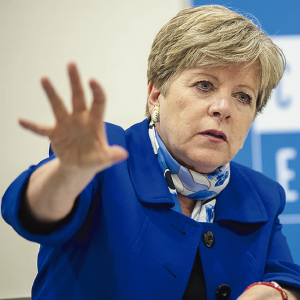In Latin America, almost 61 million people live in extreme poverty. “For us, employment is the key to get the people out of poverty”. This is how Alicia Bárcena Ibarra, Executive Secretary of Economic Commission for Latin America and the Caribbean (ECLAC), defines the situation.
The week, between April 18 and 20, the 33 State Members of ECLAC gathered for their second Forum of Latin American and Caribbean countries about Sustainable Development in Santiago, Chile. There, they had the chance to debate the application of the Sustainable Development Goals (SDG) in a context of mutual assistance and self-assessment. Ultimately, these meetings should allow the States to access instruments to finance and implement the SDG. The participants discussed how to incorporate the SDG to national development plans, on which indicators they should focus on, and how to mobilize more national resources.
Last year, on the first summit of its kind, the ECLAC made a balance of the situation. The States examined and traced a map of the existing institutional frameworks, the institutions that had already adopted certain measures and areas in which further progress is necessary.
While some countries of the region already have national action plans and others do not, the ECLAC created a methodology that can be used when working with countries to determinate how they could incorporate the objectives in their national plans and, according to Alicia Bárcena Ibarra, how to “move from the rhetoric to the public budgeting”.
ECLAC, through the American Statistical Conference, helps each country to determine which of the numerous indicators that supervise are the more important and how to improve the national statistic systems. It is also working with leading data companies to find the best way of aggregating information. Since key statistics are often found in different governmental agencies, this work is necessary.
Beyond the mapping exercise, ECLAC helps countries to mobilize internal resources, mainly through the control of tax evasion, that represents a lost of 6,7% of the PIB, that means, 340 billion dollars annually.
In this sense, Alicia Bárcena Ibarra states: “We are not asking for an increase of taxes, we know it’s very controversial, but at least the exploitation of resources that go out of the region. We are trying to see how the ministers of finance can be more active on this program”.
In summary, ECLAC strives to help the region benefit in a more equitable way from commerce-related funds that are transformed into programs that contribute to the achievement of the Sustainable Development Goals.
Source: https://www.devex.com/news/how-eclac-is-in-helping-latin-america-achieve-the-sdgs-92370

